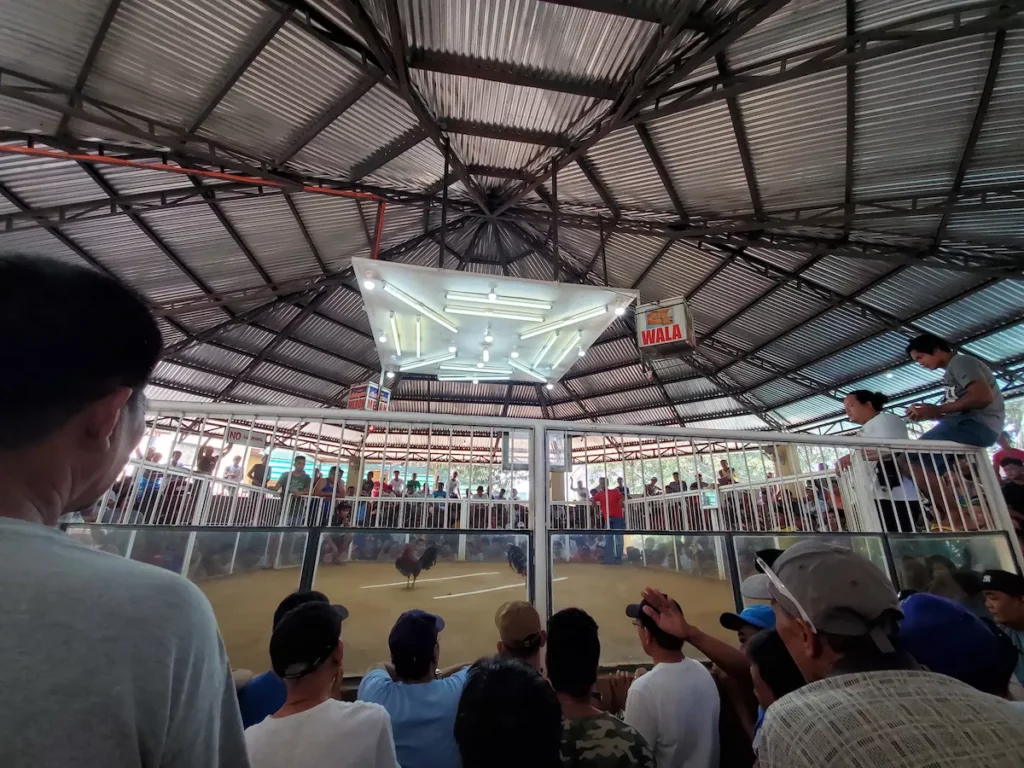The Federal Ban on Cockfighting Is Settled Law, as Congress Winds Up to Strengthen the Law Again
WASHINGTON, D.C. — Yesterday, a U.S. District Court dismissed with prejudice a legal maneuver by a former Northern Marianas Islands local politician and executive agency official – a self-described lifelong cockfighter – to invalidate the application of the federal ban on cockfighting to the Northern Marianas Islands.
Andrew Salas argued that an anti-cockfighting provision of the Agriculture Improvement Act – enacted into law in December 2018 and which took full effect one year later – overreached in applying the prohibition to the Northern Marianas Islands. The United States opposed his legal argument, filing extensive pleadings in the case.
In a 15-page opinion, Chief U.S. District Judge Ramona Manglona determined, in dismissing the case with prejudice, that “the federal interests in regulating interstate commerce, preventing the spread of avian flu, and ensuring the humane treatment of animals outweigh the degree of intrusion into the internal affairs of the CNMI as it relates to the tradition of cockfighting.”
Mr. Salas’s attorneys have vowed to appeal. That appeal would go to the U.S. Court of Appeals for the Ninth Circuit. In December 2021, that court affirmed a ruling of the U.S. District Court for the District of Guam that Congress has the authority to bar animal fighting throughout the United States, including in the U.S. territories. That case was brought by Guam-based cockfighting enthusiast Sedfrey Linsangan. Mr. Linsangan appealed a ruling by the U.S. District Court for the District of Guam that his claims were legal invalid and that U.S. law bans cockfighting on Guam.

Two months prior, in October 2021, U.S. Supreme Court denied a writ of certiorari from cockfighters and political leaders in Puerto Rico seeking relief from the same federal law that bans cockfighting there. That pleading came to the Supreme Court after a U.S. District Court in San Juan and the U.S. Court of Appeals for the First Circuit rejected the claims of cockfighting interests and their local political allies in Puerto Rico.
“Two prior challenges to the 2018 federal law against staged animal fighting were met with unanimous disapproval by five federal courts, and a sixth court has added its voice,” said Waye Pacelle of Animal Wellness Action, which has filed pleadings in the prior cases and was prepared to file an amicus brief in this case if it went to trial. “The Congress has determined that cockfighting is bound up with interstate commerce and that the United States has authority to outlaw staged animal combat everywhere in the United States because of our national interest in protecting animals and stemming the spread of zoonotic disease.”
The 2018 federal law built on an already strong federal statute to combat animal fighting by making it a felony to operate a cockfighting venue or to participate in animal fights. Other provisions of the federal anti-animal fighting law – such as prohibitions on transporting or receiving fighting birds, trading in fighting implements, or being a spectator at an animal fighting event – had already applied to the territories for years.
“Mr. Salas is free to appeal, but he and other CNMI cockfighters should heed the law and stop hacking up animals for illegal gambling and the thrill of watching the bloodletting,” added Mr. Pacelle. “The activity he refers to as a hobby and a tradition is a federal felony.”
Animal Wellness Action, the Animal Wellness Foundation, and the Center for a Humane Economy have participated as a friend of the court (amicus curiae) on the side of the United States in all prior challenges to the 2018 U.S. law banning cockfighting.
Noting the barbarism of staged dogfighting and disease threats to poultry posed by cockfighting, Reps. Cindy Axne, D-Iowa, and Don Bacon, R-Neb., introduced legislation earlier this week to strengthen the federal law against animal fighting. Reps. Mark Amodei, R-Nev., Troy Carter, D-La., Buddy Carter, R-Ga., Brian Fitzpatrick, R-Pa., Nancy Mace, R-S.C., Jim McGovern, D-Mass., and Mike Quigley, D-Ill., joined them as original cosponsors of the legislation to outlaw gambling on on-line animal fights, to ban shipping adult roosters through the U.S. mail, and to enable citizens to file civil actions against known dogfighters and cockfighters. The bill is H.R. 9309, and Animal Wellness Action announced the introduction of the bill here and wrote extensively about it here.
For a legislative history, go to the Animal Fighting Law page.


